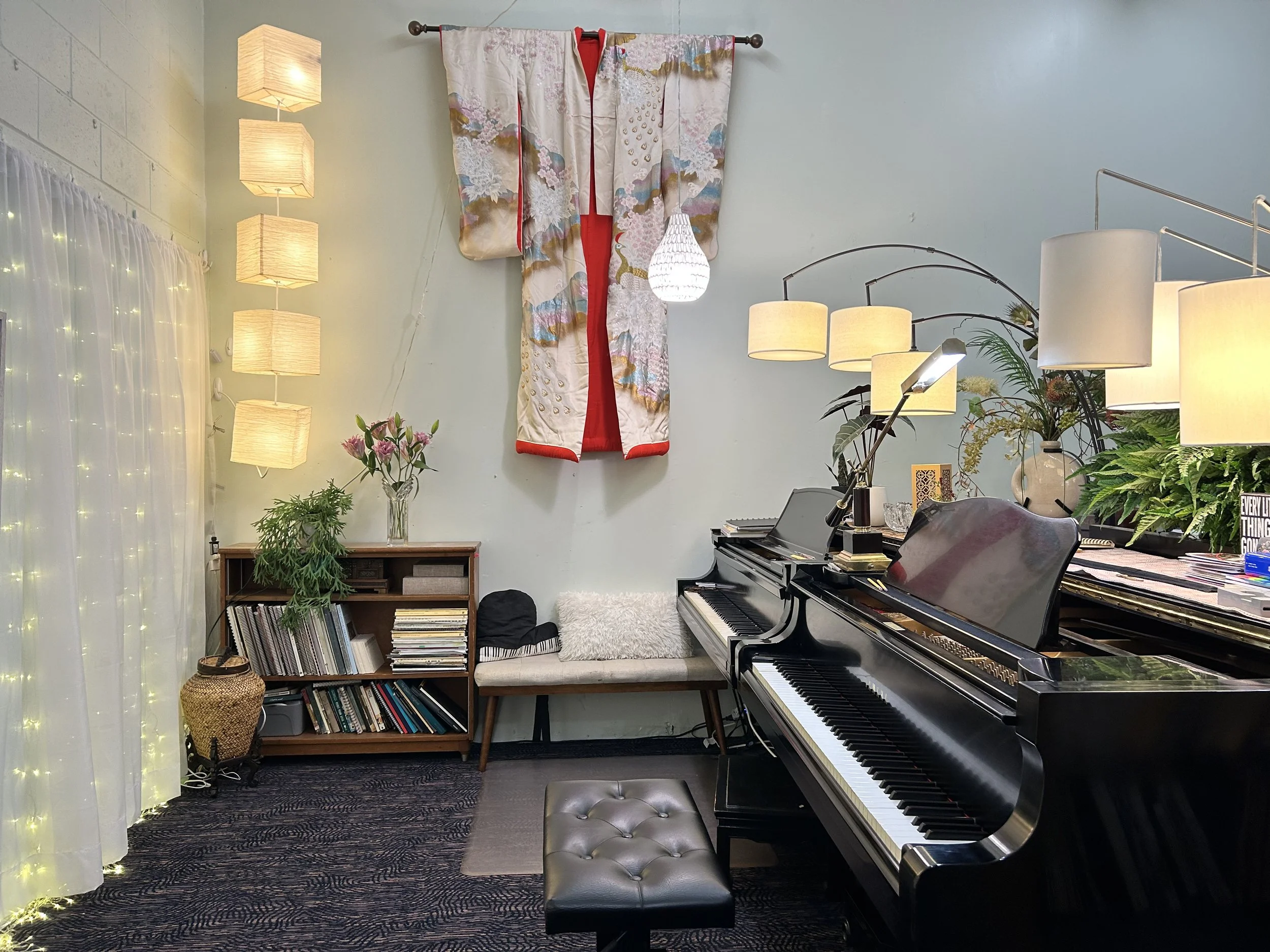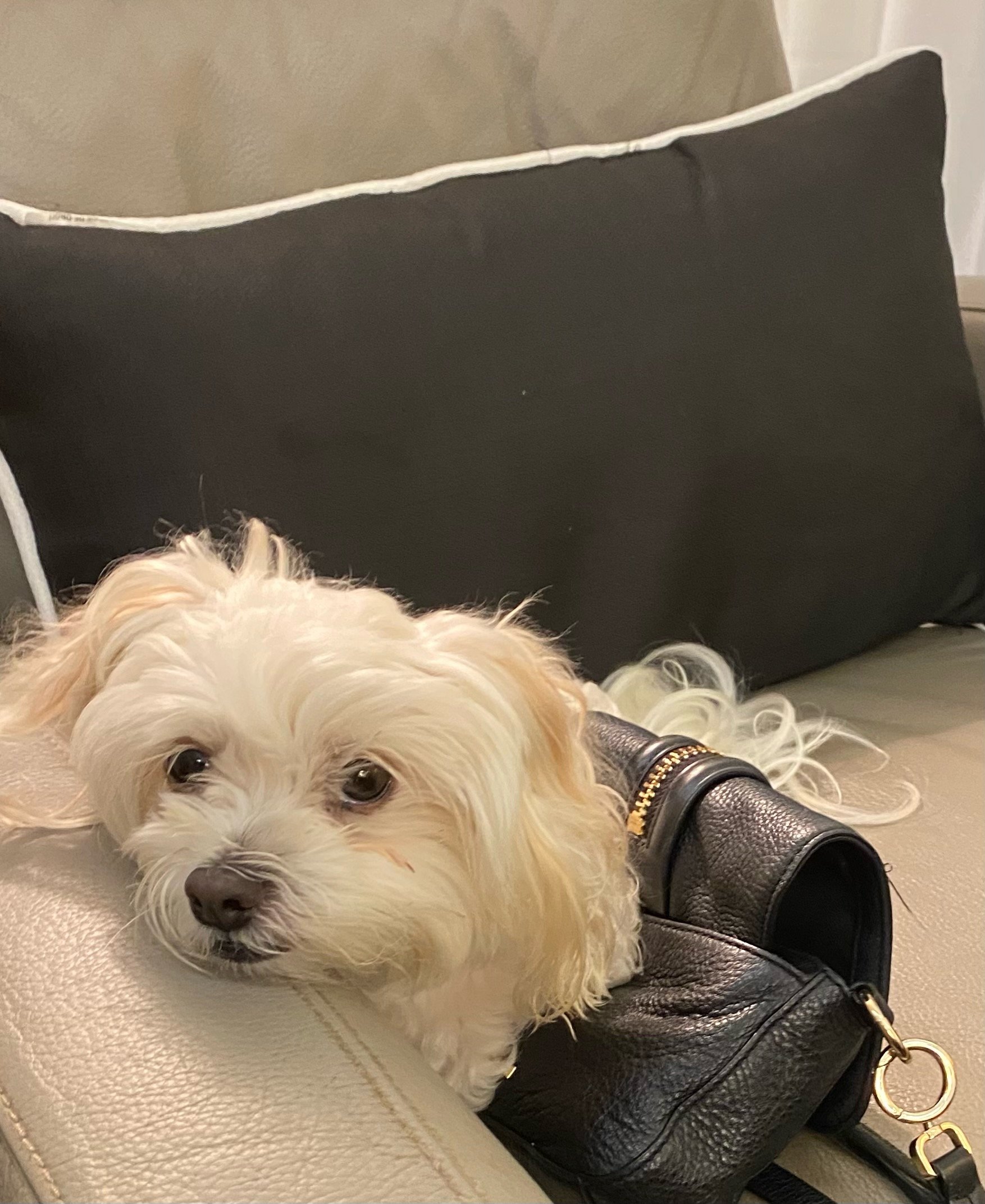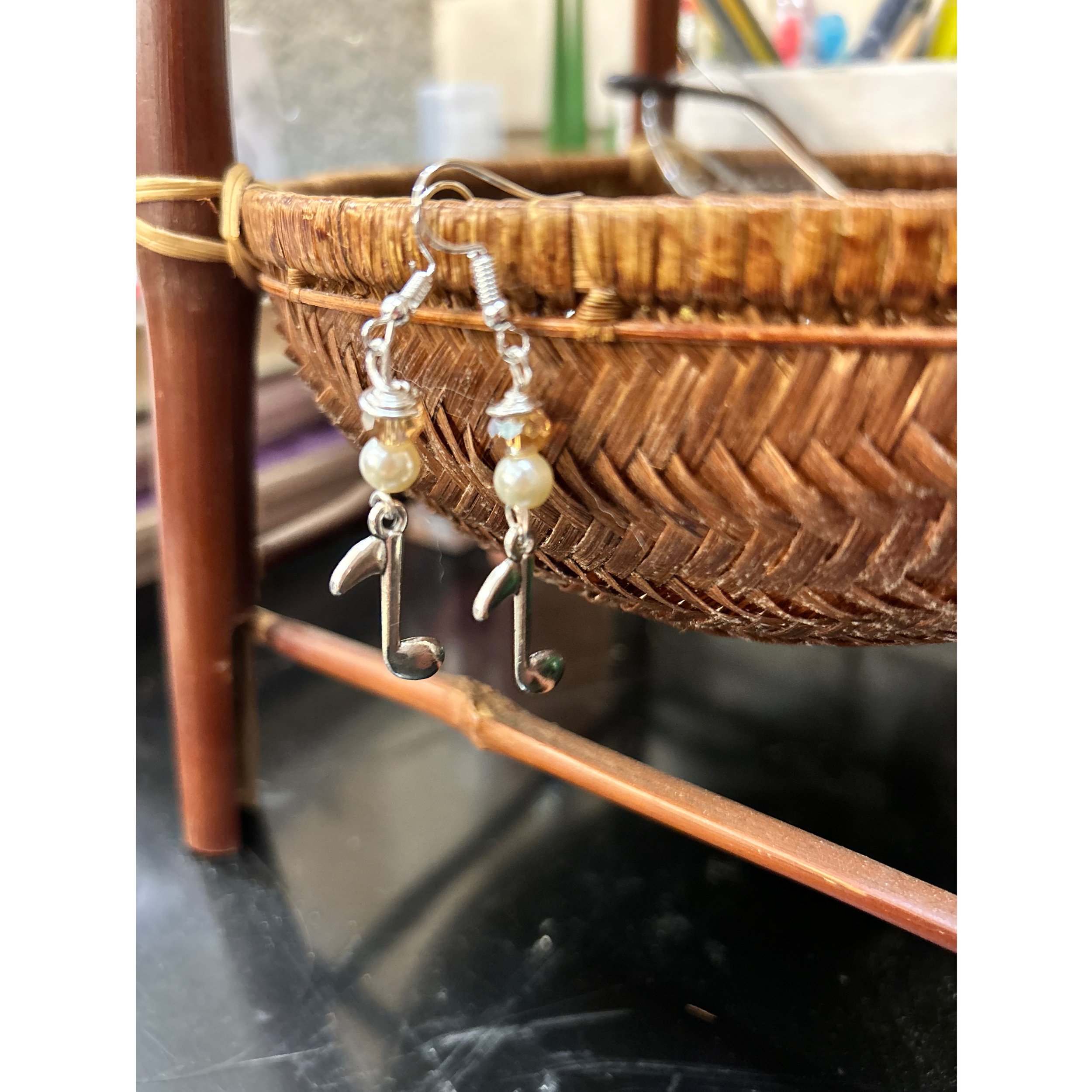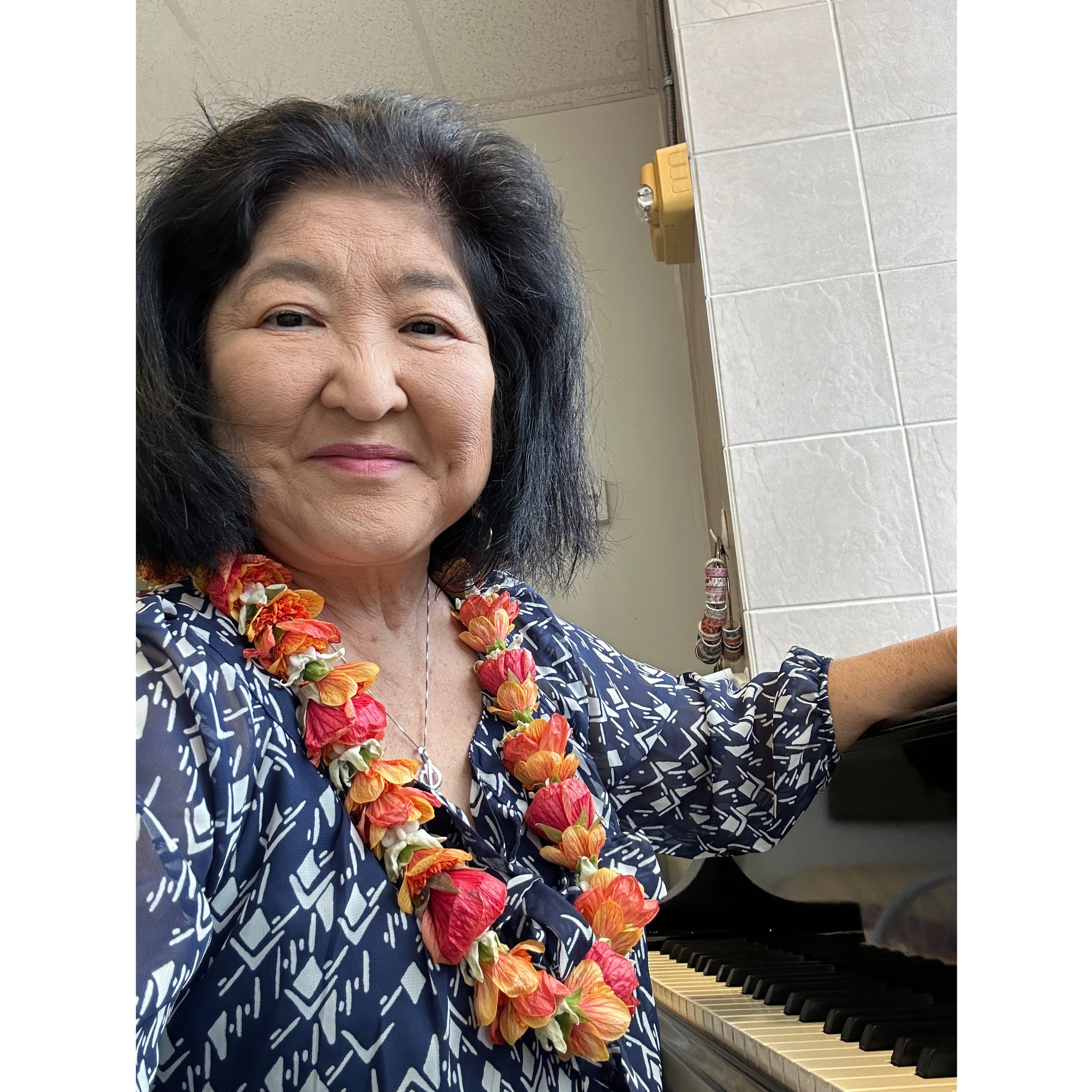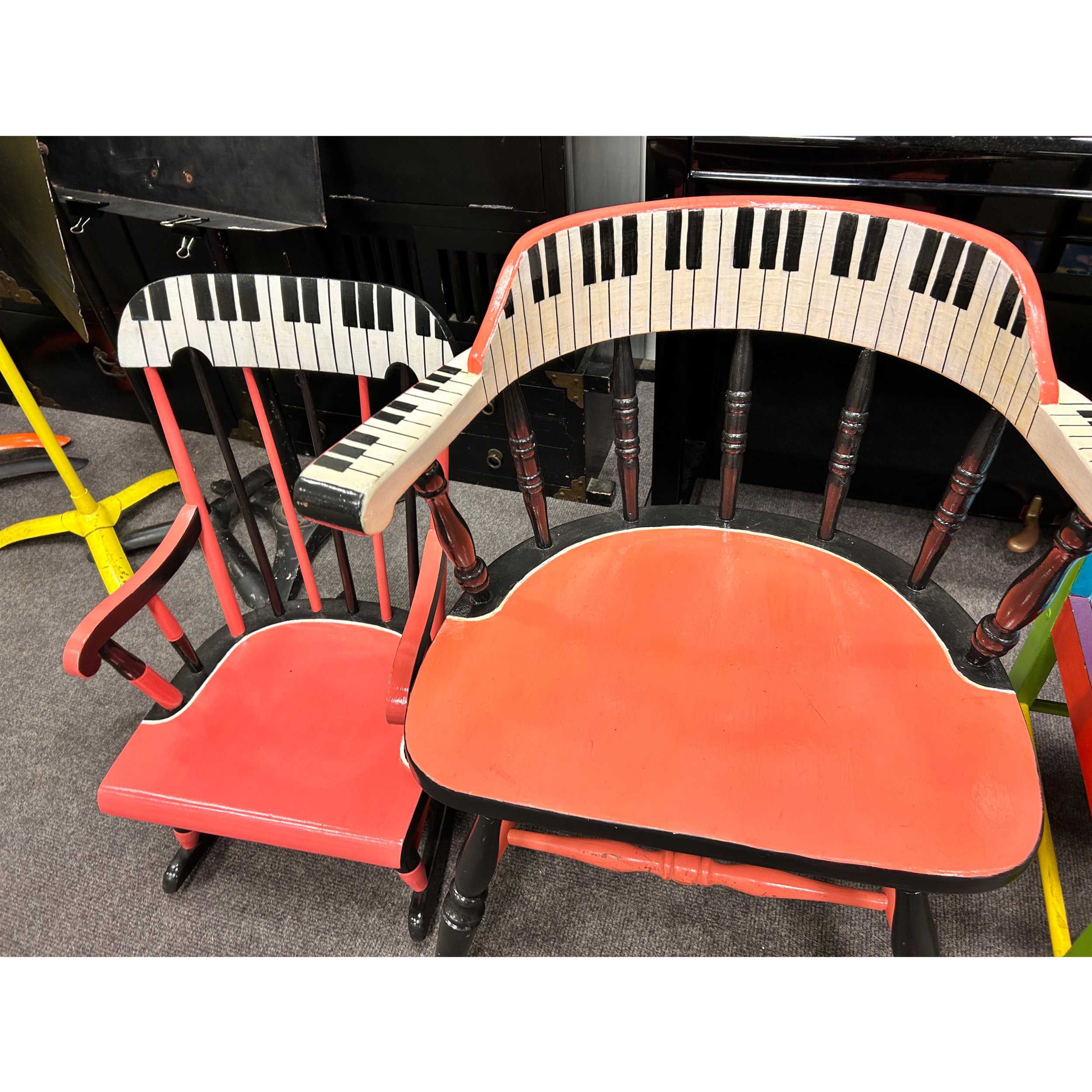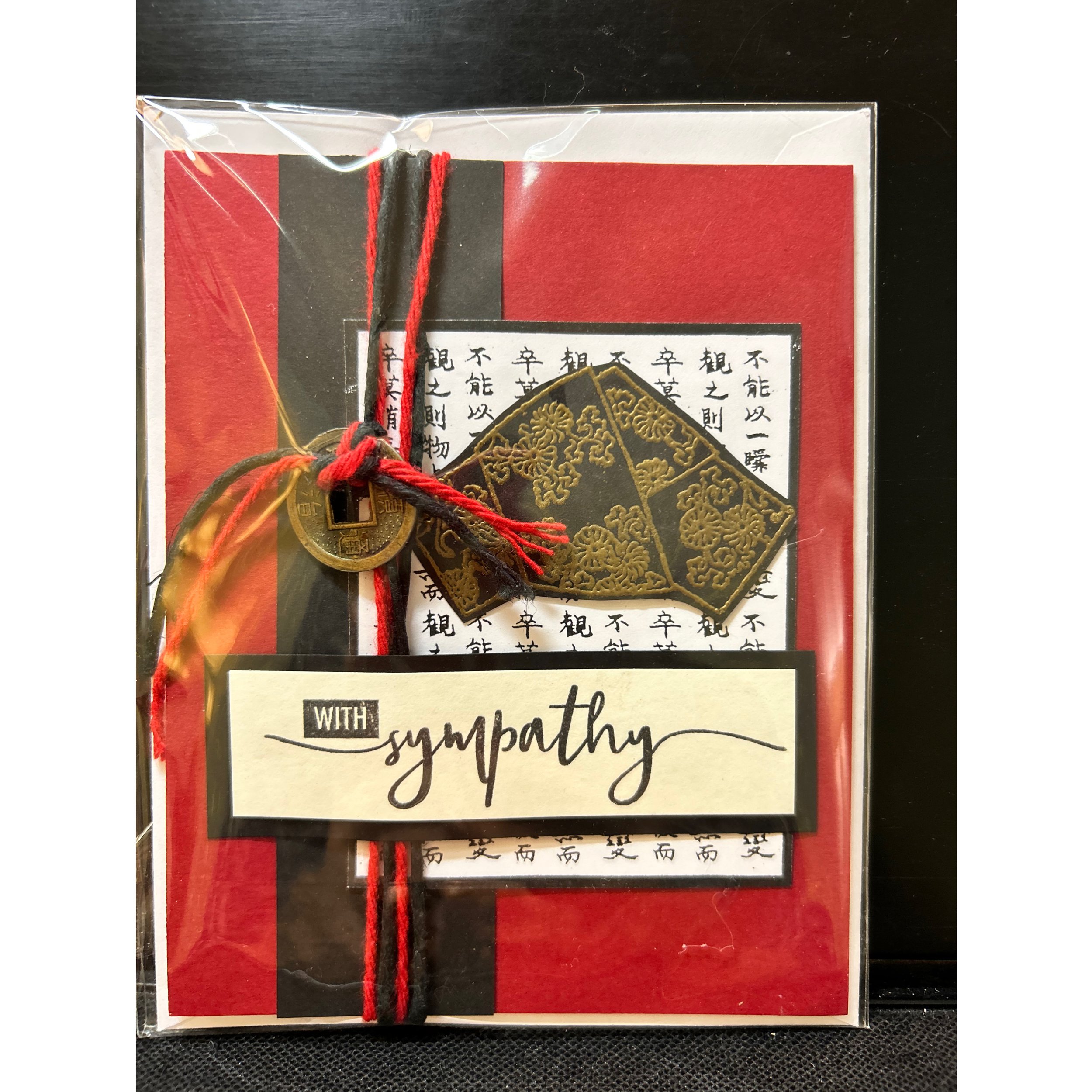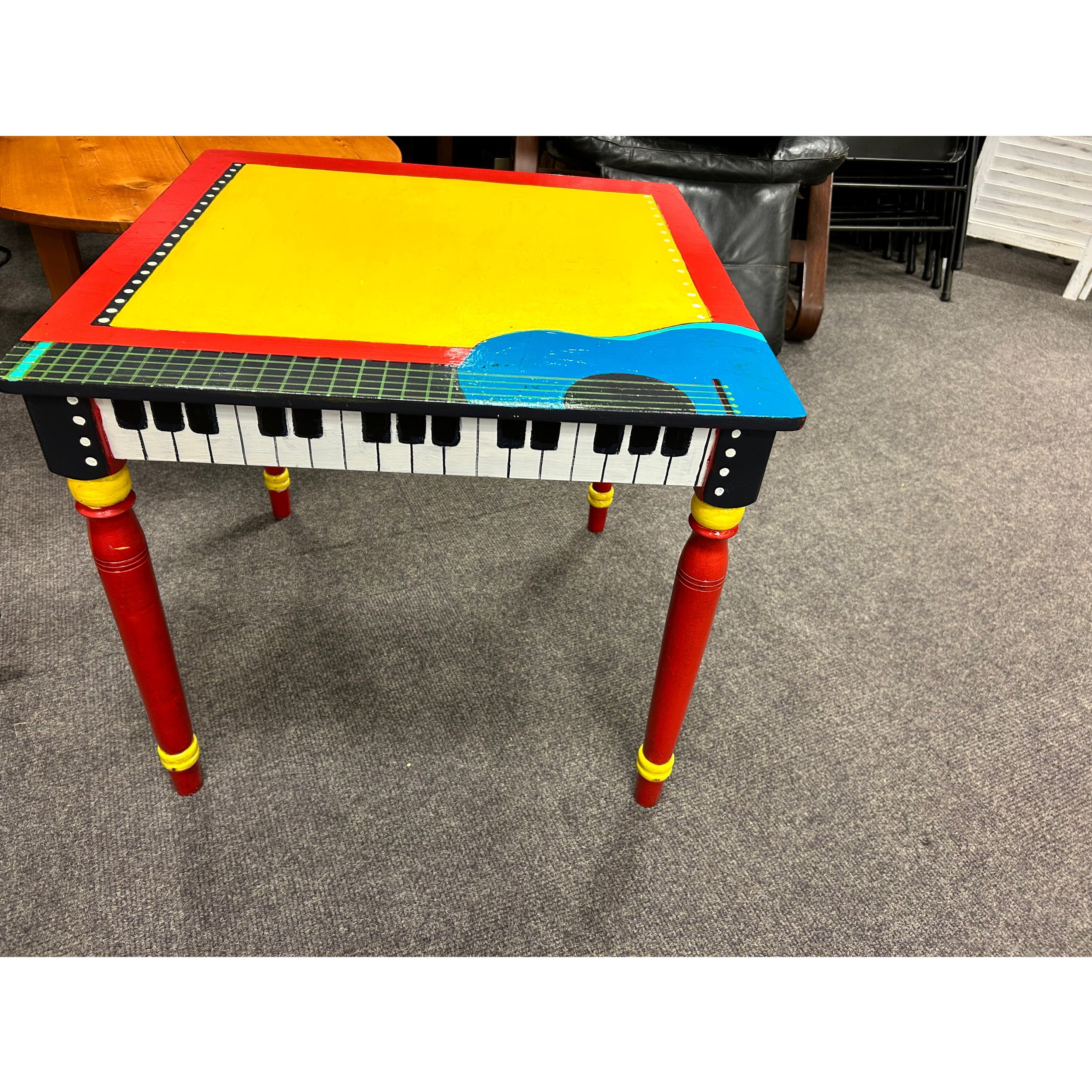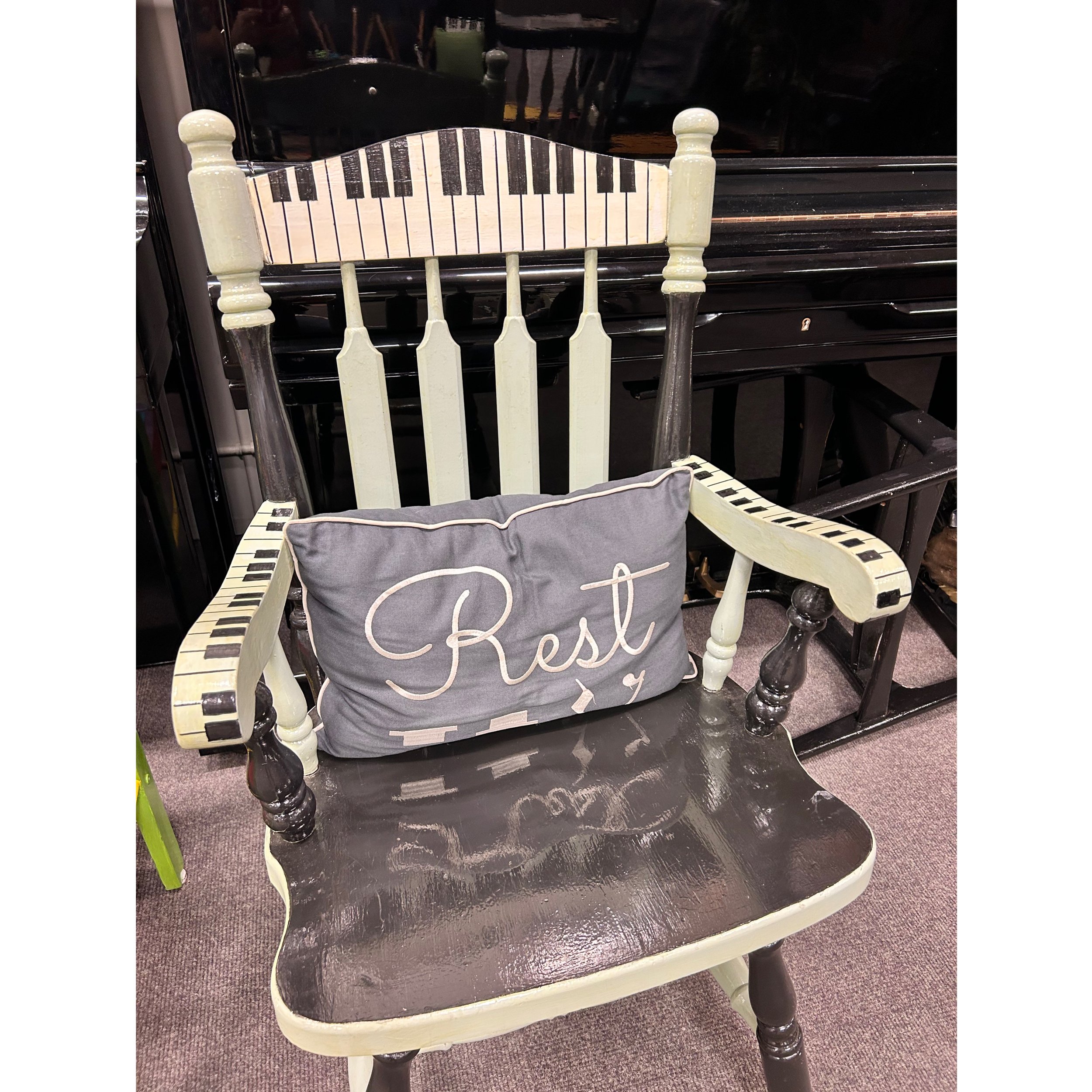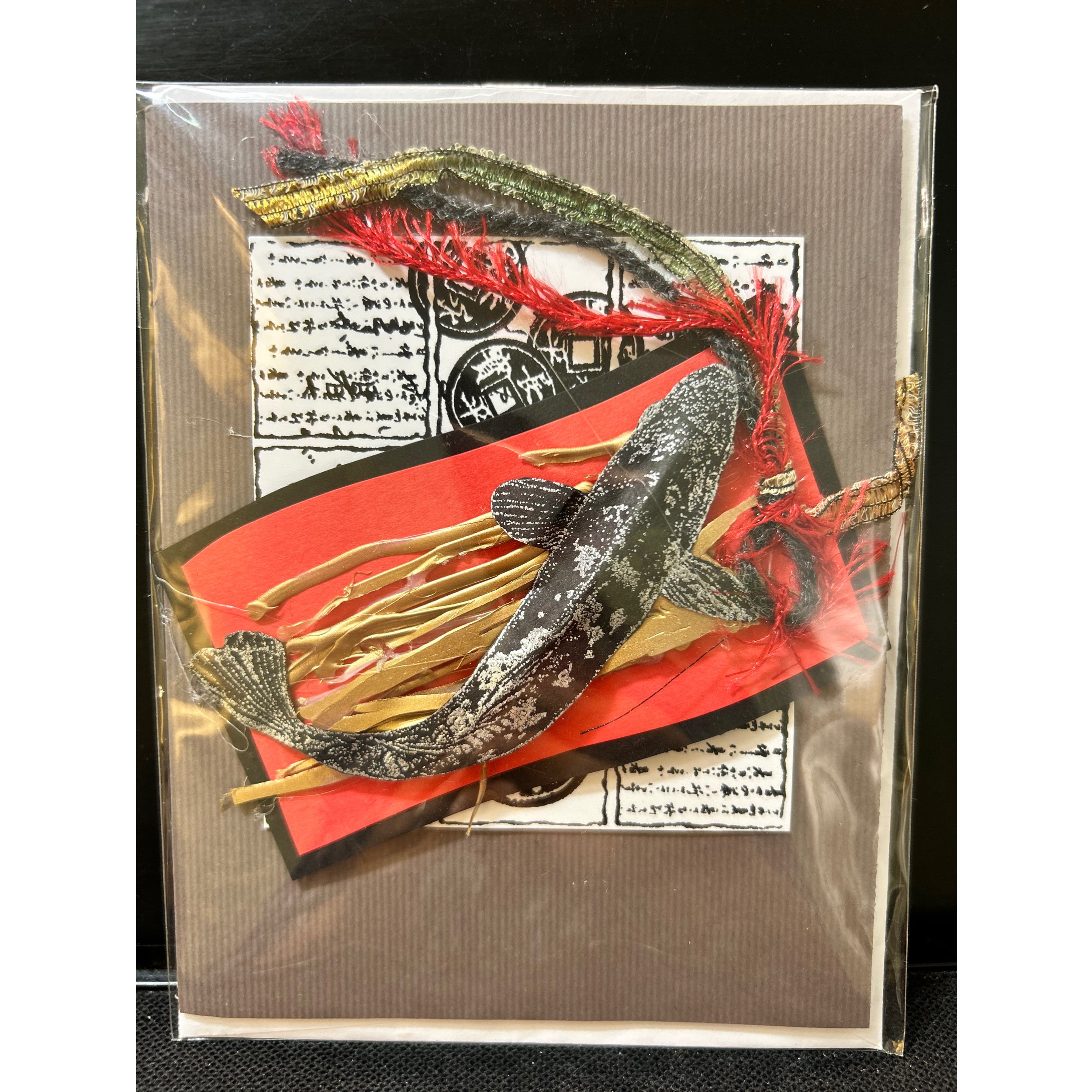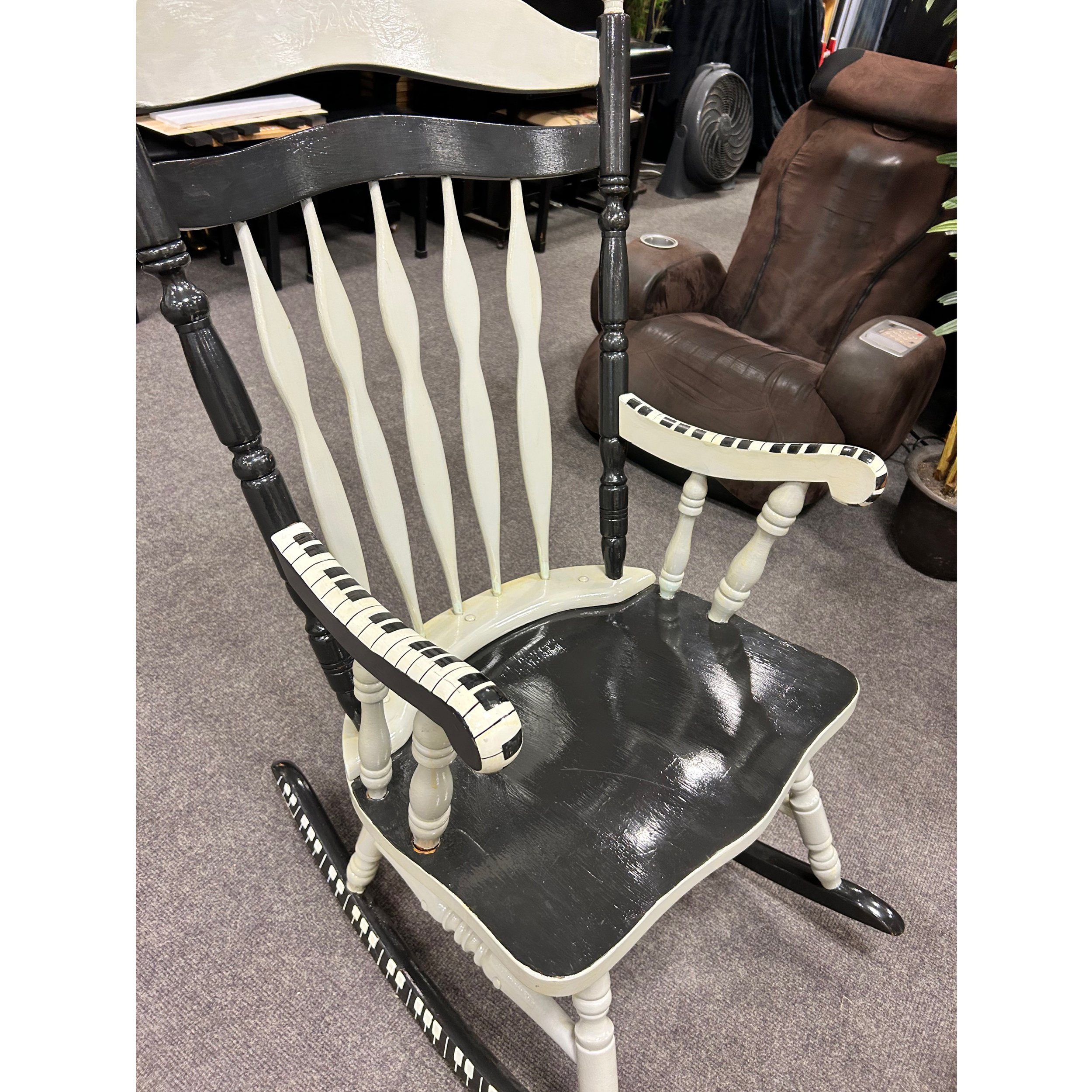From L-R: Ailis Nguyen (2023 Hawaiʻi State Music Competition Piano Level II 1st Place Winner), Ruth Murata-Eisen, and Henley Anthony (2023 Hawaiʻi State Music Competition Piano Level I 1st Place (tie) Winner)
Tell us about your musical background. How did you find your calling as a pianist and piano teacher? I started lessons at age four with Ernest Chang. My mother was a piano teacher and decided for me that I would become a pianist. I was really not interested in the piano and begged to quit, but she would not allow it. When my parents moved to Maui, they announced that I would need to stay in Honolulu to continue lessons with Mr. Chang, as there were no piano teachers on Maui.
I attended Oberlin Conservatory of Music and graduated in 1979. When I was in my last year at Oberlin, I entered a Tri-state Competition. The prize was to be the soloist with the Columbus Symphony. I remember thinking that I probably would not make the cut at Oberlin because all the good kids were entering too! But I was the only one chosen at Oberlin and went down to the finals. I played well, but had a memory slip and left out an entire page while my accompanist played away. I promptly came back in and continued. At the end, I was about to leave the auditorium since I thought that I had not won. I was hopeful that maybe I had placed third. But they announced the third place and second place, so I began walking out. And first place is from Oberlin Conservatory. How could it be? Such a lousy audition!! But it was true, and I received $500 and played with the Symphony. I called my mom and said, "Mom, maybe I could do competitions to make money!" She replied, "But, I paid for piano lessons for a whole year for you to learn that piece. It is not a good way to make money." And that was the end of competitive piano playing for me. By this time, I really needed to think about how to make money and start my life!
After graduating from Oberlin, I was then hired to come back and take over another teacher's studio of 50 students. I was thrown into teaching quite early in my life with a full load of students. Within 2-3 years, a few students had been chosen to play with the Honolulu Symphony, so I knew that I was providing a different style of teaching than what had been previously available.
I own a large music school with 5 full time piano teachers and a string teacher. I have had this business for over 40 years. I buy and sell pianos as part of my music school business. I have learned to completely rebuild a piano in the last 10 years. I have been re-stringing pianos for about 8 years and am currently working very hard to learn how to regulate dampers. Voicing and regulation are the most difficult part of making a piano perfect. There seems to never be perfection when working on all the intricate parts of the action.
I am also a Music Minister at Trinity Episcopal Church By the Sea in Maui. I have been at this position for almost 30 years. Using my music to create the atmosphere that is needed at church is very important to me and has been a life calling.
Who was one of your greatest musical mentors and how have they influenced you as an artist or person? Ernest Chang has been one of my greatest mentors, listening to my students, and giving me advice during my many years of teaching. One of the greatest moments for us was when we both had students win the Honolulu Symphony Concerto Competition. No other teachers had winners that year.
Ruth’s furry best friend, Auliʻi, who sits on the piano bench and comes to the studio everyday.
I guess, although I never wanted to play the piano, and never thought I would become a piano teacher, my mother knew best! Abraham Lincoln said: "All that I am, and all that I ever hope to be, I owe to my mother." I never take for granted what she has done for me. To all you mothers who are struggling with your kids: don't give up!
How do you guide and motivate a very young student who is studying a complex and challenging piece? When teaching very young students, my goal is always to get one level of perfection down first, then add the varying levels on top of that. Some kids can get 50 or more little things fixed in a piece. Other students can just play the notes, timing, and fingering correctly, but that's pretty much it. It is a student's ability to layer the complex details that makes a student stand out over others. And, of course, playing musically. For a four-year-old to feel the music, the teacher has to be a good role model and play and sing the melodies until the child can copy that exact feeling when playing.
What do you enjoy doing when you're not teaching, practicing, or performing? I am an avid crafter and have a handmade card line, as well as a jewelry line (which features jewelry with music related items on them). My family also owns a lei farm; I have expanded the farm at our home, and we pick and sew leis everyday.
Please share your best advice for neighbor island students who are seeking careers as classical musicians. If you are a serious classical musician on the outer islands, please choose your instructors carefully. Every month and year are important when you have young children. Forming the correct habits early makes a student easier to teach as they grow older.

